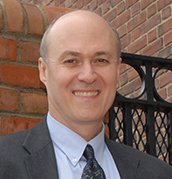Letter from the Director
Letter from the Director
The extreme weather in New England this winter has tested even the most resilient among us. Hours-long commutes, weather-related closures, and bitter cold has translated to a lot of added stress. I usually find shoveling snow to be relaxing but even I have had my fill. Even before this tough winter, however, the American Psychological Association’s 8th annual Stress In America survey reported that Americans are feeling more stress than we believe to be healthy, with women and millenials (those age18-35) experiencing more stress than anyone else.
Not surprisingly, money tops the list of stressors, with 64 percent saying it is a significant source of stress. Work, the economy, family responsibilities and personal health concerns are also high on the list.
From a broad perspective, this survey reinforces the need to address the growing income gap, gender inequality, and the difficulty that young people face in finding good jobs and paying off college loans. But at a more personal level it spurs us to consider how much we might be able to reduce our experience of stress, improve health and quality of life simply by improving our ability to better cope with life’s stressors.
The unfortunate irony is that the more stress we feel, the less likely we are to do things that help us cope with stress. No matter how well we understand that healthy lifestyle and feeling socially connected are important in relieving stress, it’s also true that these helpful behaviors are just the things that fall by the wayside when we are overwrought with challenges. Thirty-two percent of those surveyed said that finances or lack of money prevent them from living a healthy lifestyle, or even making necessary visits to a doctor. Stress leads to increased social isolation, which itself leads to an increased sense of stress, creating a downward spiral of stress-inducing behavior that results in increasingly intractable problems.
Our mission at BHI is to invert this downward spiral to an upward one, in which shifting to positive thoughts and behaviors reduces stress, improves health and builds long-term resilience. We seek to disseminate this knowledge and to encourage good mind body health practice in our patients, their families and in the doctors, nurses and professional caregivers who provide care every day in stressful settings. Toward this end we were excited to learn recently that residents in psychiatry (Deanna Chaukos, Tom McCoy), and in internal medicine (Laura Byerly) along with Darshan Mehta and John Denninger of our BHI staff have been awarded an MGH Education and Teaching Grant to implement and study the long term benefits of our SMART program for psychiatry and internal medicine interns. Internship is a stress “trial by fire” and we are hopeful we can have a positive lasting impact on the lives of these young physicians.
While studies consistently show that mind-body practices significantly improve health and quality of life, like anything that’s good for you, the practices are only as good as our ability to stick with them.
So how do we get those helpful behaviors to become habits? It turns out that enjoying an experience is a key factor in our ability to commit to them. And a key to enjoying an experience is doing it with mindful awareness. If it’s exercise we’re talking about this means being fully present in the activity, whether biking, hiking walking or whatever. Rather than staring at the clock until your 20-minute workout is over or drifting off into thoughts of what to make for dinner, you are gently alert to the sights and sounds around you, the sensations in your body, your breath entering and leaving your mouth and nose. While exercise isn’t always comfortable, when done mindfully, it becomes more enjoyable, and thus easier to keep to a routine.
Once we learn to approach one component of our lives with this sense of attention and calm curiosity, we can more easily translate it to other aspects in a process that is truly transformative.
In this issue of BHI News, we explore the application of mindful awareness and other relaxation response elicitation techniques in the workplace with a reprint a 2005 interview with Dr. Benson that appears in this month’s issue of Harvard Business Review. We look at the research that is moving the field of mind-body medicine ahead as seen from the perspective of Research Director John Denninger, and we get a sneak peak at some of the research and educational programming with which BHI is currently involved.




